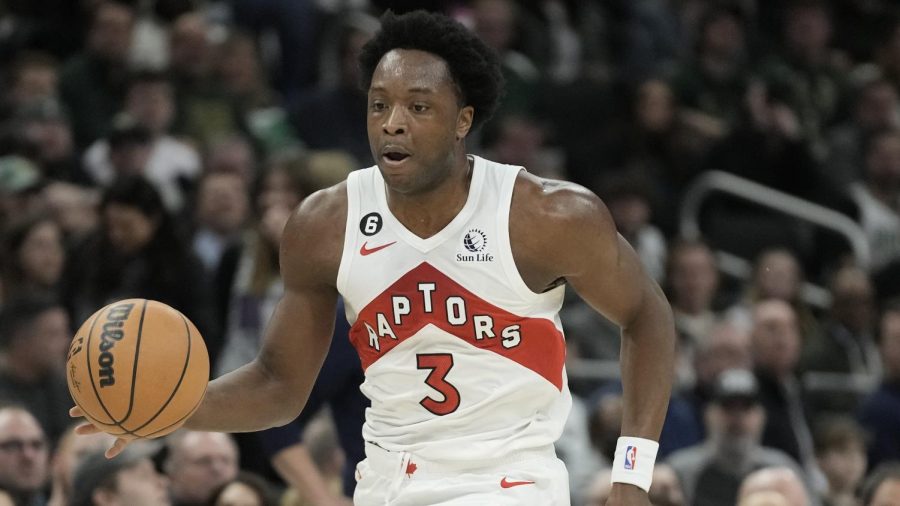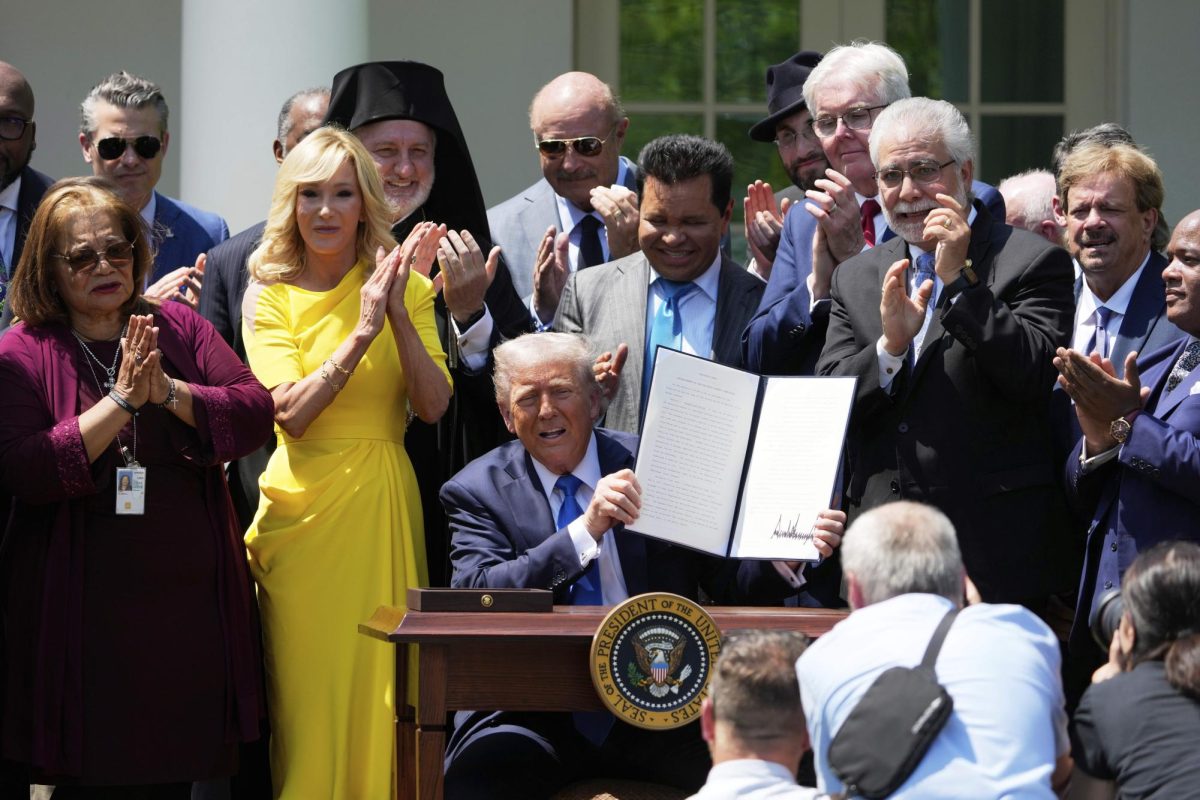There is Parity Scattered Around the NBA
Raptors forward OG Anunoby dribbling in a game vs. the Bucks on Jan.17
January 20, 2023
The NBA is currently enjoying immense success and popularity, and the league is expanding both nationally and globally. The league features a hugely talented and varied roster of athletes, several fiercely competitive teams and a devoted fan base.
With the addition to the play-in tournament added in the 2020-2021 season, many teams’ ownership still sees themselves as a team who is competing for a playoff spot.
The play-in tournament enables each conference’s 7-10 seeded teams to compete for the final two playoff slots in a one-game tournament. The play-in was added in the bubble year when the league couldn’t finish the whole season. But ever since, it has been turning into a money grab for the league.
Many franchises mistakenly believe they may still be competitive to make it into the playoffs as a result of the play-in round, which is an issue.
The Charlotte Hornets are one case of the problem. The Hornets have refused to make deals the past two seasons to improve the club going forward, and in both years they finished as the 10-seed. In the end, they lost both games by huge margins.
Even NBA analysts recognize the problem that most organization has to deal with.
“There are several teams that are close to making a play-in spot,” former NBA player JJ Reddick said in The Old Man and the Three Podcast, “therefore they don’t want to trade their assets.”
Another factor of the slow movement in the NBA includes the Utah Jazz, parting ways with All-Stars Donovan Mitchell and Rudy Gobert this summer as the team exploded. Seven first-round picks were among the enormous package the franchise received in return.
This season’s trade activity has been halted as a result of these two circumstances. Some front offices believe they are still in the running for the playoffs, while others believe their players are worth too much.
While including the teams that are tanking believe they will receive a tremendous return on their assets, this is untrue.
Many teams should simply give up on this season. It serves no use for a franchise to struggle for a single-game play-in scenario without considering the long-term future. Especially when there are many great prospects in the upcoming draft in June.
The coaching staff, player contracts and front-office decisions made by a team can also have an impact on transactions. Teams could not want to sign a player with a long-term deal or a high wage, or they might not want to trade away significant assets or vital players.
Coaches may also be reluctant to bring in new players with whom they are unfamiliar or to trade away individuals with whom they have a positive working relationship.












